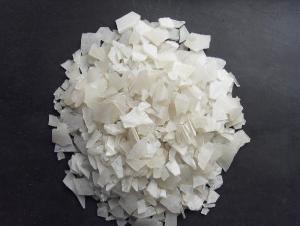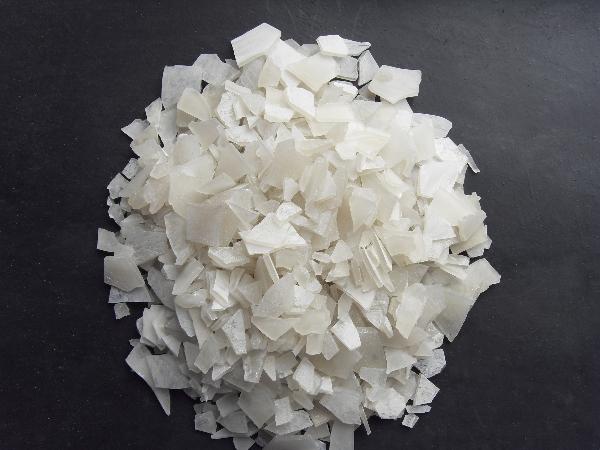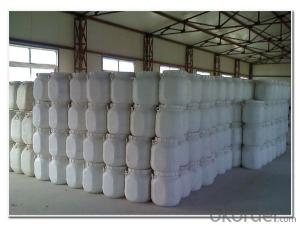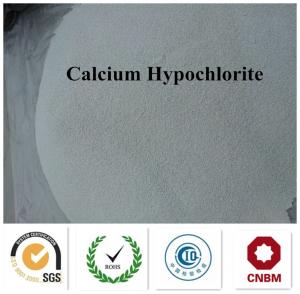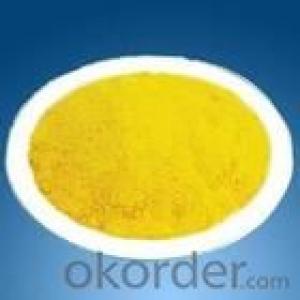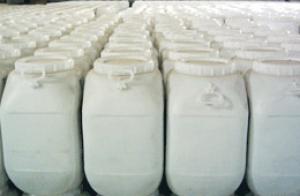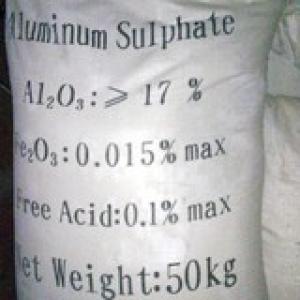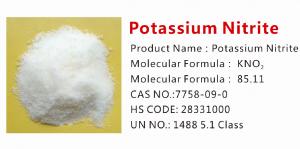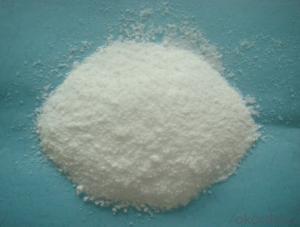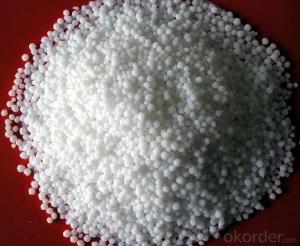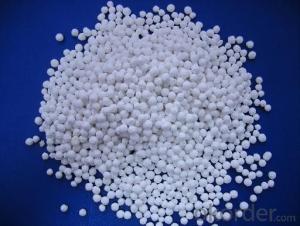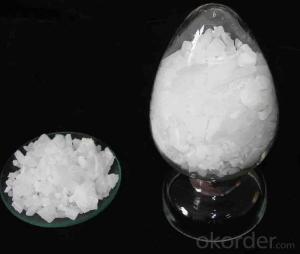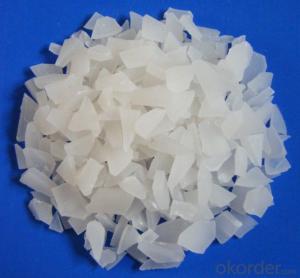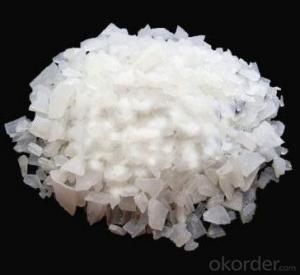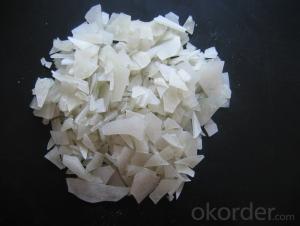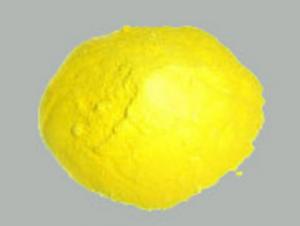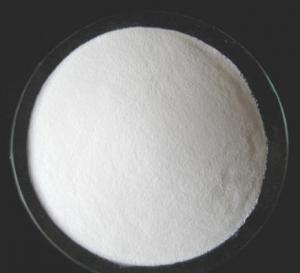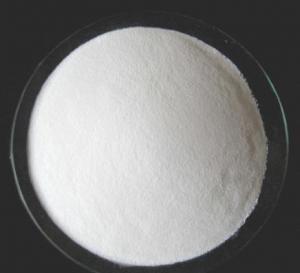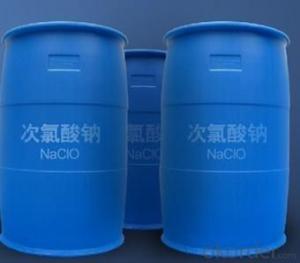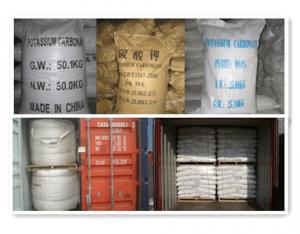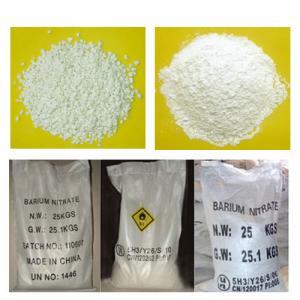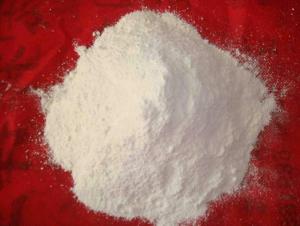Aluminium sulphate for water treatment
- Loading Port:
- Tianjin
- Payment Terms:
- TT OR LC
- Min Order Qty:
- -
- Supply Capability:
- 6000 m.t./month
OKorder Service Pledge
OKorder Financial Service
You Might Also Like
Aluminium Sulphate
Property:
It is white or grey flake,particle or massive crystallization.Apt to cake after moisture absorption when laid in air for a long time.A little green because of Fe2+ ,yellow when Fe2+ is oxided to Fe3+.Soluble in water easily,and water solution is acid.
Specification:
Item | Grande | ||
| Excellence | Grade A | Quality |
Apperance | White flake,lump,granular or powder | ||
Al2O3 % ≥ | 17.00 | 16.00 | 15.80 |
Fe % ≤ | 0.005 | 0.005 | 0.01 |
PH ≥ | 3.0 | 3.0 | 3.0 |
As % ≤ | 0.0005 | 0.0005 | 0.0005 |
Water Insoluble % ≤ | 0.1 | 0.2 | 0.3 |
Packing | PP/PE,50KG or 25KG/BAG | ||
Applications:
Water effluent treatment system It's used for purification of drinking water and wastewater treatment by settling of impurities by means of precipitation and flocculation.
Paper Industry It helps in sizing of paper at neutral and alkaline pH, thus improving paper quality (reducing spots and holes and improving sheet formation and strength) and sizing efficiency.
Textile Industry It is used for color fixing in Naphthol based dyes for cotton fabric.
Other Uses Leather tanning, lubricating compositions, fire retardants; decolorizing agent in petroleum, deodorizer; food additive; firming agent; dyeing mordant; foaming agent in firefighting foams; fireproofing cloth; catalyst; pH control; waterproofing concrete; aluminum compounds, zeolites etc.
- Q: TRUE OR FALSE: the addition of salts to water will always increase the surface tension of water. explain.?
- False. Although inorganic salts will increase surface tension of the water by increasing the attractive forces between water molecules on the surface, organic salts will typically (always?) decrease the surface tension.
- Q: The stronger the transpiration is, the faster the absorption rate of inorganic salts and water is
- Due to dry conditions are not complete, the lack of text, can not be a normal answer.
- Q: CuMnFeNior ZnAlso metal calcium reacts with molecular hydrogen to form a compound. Which statement concerning this compound is not true?It's formula is CaH2it is ionicsolid at room tempwhen added to water, reacts to produce h2 gaswhen added to water, forms acidic solutionMy guess was going to be that it is not ionic, but i'm not 100% positive.Can anyone help me with these chemistry questions? Or atleast point me to some webpage that might help. Please and thank you.
- Only Zn compounds form colorless or white salts. The second question would be the last answer, which is false. It forms an alkaline solution when added to water.
- Q: are there any other foods than water and salt that have an abiotic origin (lifeless, inorganic)?
- Various minerals we need, like iron, zinc, magnesium, etc. That's it. These also are not technically foods, as the first poster said.
- Q: Do inorganic mercury salts bioaccumulate?
- Yes they do bioaccumulate. Mercury builds up for years and years, and eventually sits in a residue of pure mercury. - JJ
- Q: How to add inorganic salts
- Helicobacter pylori can cause a variety of stomach problems, including gastritis, gastric ulcer, duodenal ulcer, non-ulcerative indigestion, gastric cancer. Therefore, the eradication of Helicobacter pylori has become an important measure for the treatment of modern gastrointestinal diseases. To identify patients with Helicobacter pylori infection, the clinical need for a high sensitivity, specificity, fast, simple, safe, inexpensive Hp diagnostic method, that is, carbon 14 breath test. The examination and painless, noninvasive, fast and simple, no cross the advantages of infection, experts at home and abroad have been recommended for the diagnosis of Hp gold standard, has been widely used in clinical practice.
- Q: In order to prove that magnesium is an essential salt for soybean life, two soybean seedlings with the same growth status are taken, one of them is cultured in magnesium-containing culture medium and the other is cultured in (). A. Pure water B. Sand without sand. Water containing only magnesium. Media containing no magnesium
- Biological control experiments were the only variable experiments. The question that is being explored is the variable, and the other quantities are the same. In a different amount (conditions) the same circumstances to modify a data variable in order to get the data variables on the experimental changes in the law. In order to prove that magnesium is essential for the life of soybeans, the variable is the presence or absence of magnesium. Can be designed as a magnesium-containing culture medium and magnesium-free culture medium. The other amount of the same as the amount of culture medium, soybean seedling growth status, the same number, while placed in the same place, etc., to ensure that only one variable that is the presence of magnesium.
- Q: What is the lack of inorganic salts for children?
- Children are easy to anemia, so to add enough iron salt, sesame seeds, black fungus, pig iron are very rich
- Q: I had asked a similar question on GC operation last week, but for different kinds of compounds.For my biochem research project at school, I'm testing the ability of a species of bacteria to biodegrade alcohols found in gasoline (methanol, ethanol, isopropyl, tert-butyl and cyclohexanol). The bacteria is growing in a solution of minute amounts of alcohols and Mineral Medium, which is basically just water and dissolved inorganic salts (CaCl2, KH2PO4, NH4NO3 and MgSO4).I know GC's are primarily used to separate organic mixtures. Can a GC separate organic compounds dissolved in salt water? Is it safe to put salt water in a GC? Or would I have to do an extraction to separate the alcohols and run the organic extract through the GC?
- Do not let salts enter the GC. You will have to perform an extraction step and run that. Salts can precipitate in the column or degrade into reactive species that can corrode the GC. Water is OK since it will not destroy the column (I've run aqueous solutions before), but salts are not.
- Q: in the ocean
- Salts are the result of the association of cations and anions. Cations are usually metals like Calcium, Sodium, Potassium anions are ususally sulfates, phosphates, carbonates...... calcium carbonate and calcium phosphate are useful in making bone. Potassium Chloride is important in heart beat regulation Sodium Chloride is important in maintaining blood pressure. Carbonate is important in blood chemistry and the transfer of energy within a cell. all these salts are found in abundance in the ocean. If you follow evolution, those salts in the ocean have given rise to our own blood chemistry and organic health.
Send your message to us
Aluminium sulphate for water treatment
- Loading Port:
- Tianjin
- Payment Terms:
- TT OR LC
- Min Order Qty:
- -
- Supply Capability:
- 6000 m.t./month
OKorder Service Pledge
OKorder Financial Service
Similar products
Hot products
Hot Searches
Related keywords
